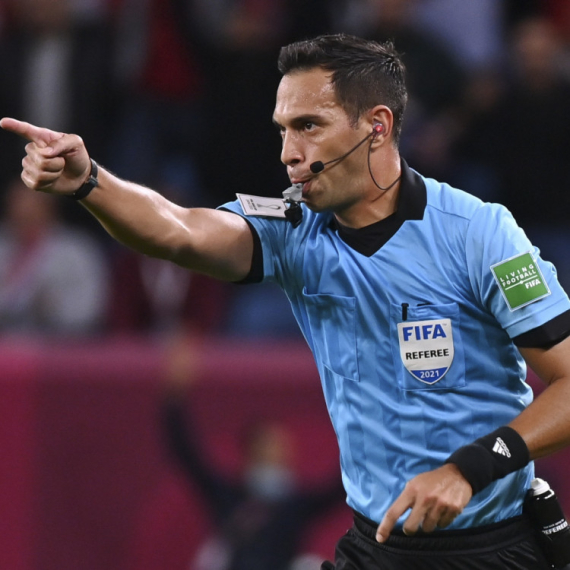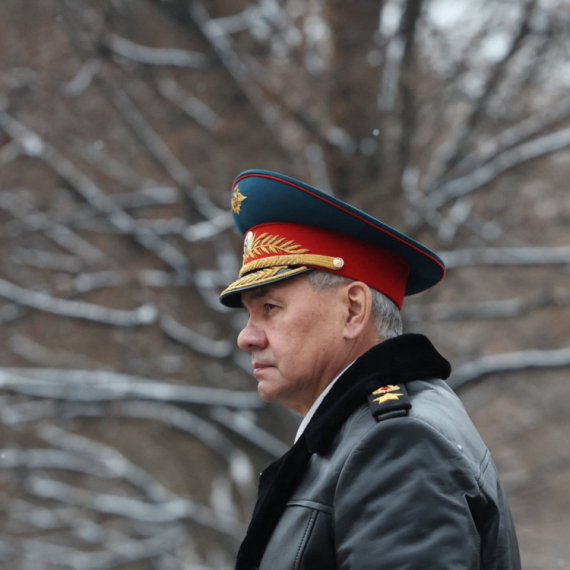Tadić: Quality before membership
President Boris Tadić has told a Czech radio station that raising the quality of living to European standards supersedes time frames for EU entry.
Tuesday, 04.11.2008.
12:12

President Boris Tadic has told a Czech radio station that raising the quality of living to European standards supersedes time frames for EU entry. “Our institutions’ strength and capacities have to be at a European level and Serbia has to tackle effectively organized crime, corruption and everything that impedes its development,” Tadic added in an interview published on national radio station Radio Zurnal's website today. Tadic: Quality before membership The president stressed that “Serbia’s strategic aim is preserve its territorial integrity and to enter the EU.” “Serbia’s EU membership must not be blackmailed with Kosovo’s unilateral declaration of independence. That’s why our initiative at the International Court of Justice serves as a guarantee that no-one will be able to blackmail us with the illegal declaration of Kosovo’s self-determination,” he explained. Tadic added that the Serbian initiative was aimed at transferring the issue of Kosovo from very hazardous political terrain on to legal ground, where Serbia had “absolute and incontrovertible arguments.“ The arrest of Ratko Mladic, which Holland is setting as a condition for Serbia’s EU integration, would happen “as soon as he is found,“ said the president. “The only reason why he’s not in The Hague is because he has not been tracked down all these years,“ he said, adding that the arrest of Radovan Karadzic had unequivocally demonstrated that Serbia was cooperating fully with the Hague. In the interview timed to coincide with the visit of Czech President Vaclav Klaus to Serbia, Tadic warned that a big problem and dispute existed between Prague and Belgrade—the Czech government’s decision to recognize Kosovo in May. “What hurts Serbia most today is the simple fact that Serbia has always supported the Czech people. All the more so given that the Czech Republic had a similar experience—the Munich Agreement that is very reminiscent of the problems with the recognition of Kosovo,“ said the president. The president expressed his hope that in the same way that the Munich Agreement had now been consigned to the past, the Serbs and Albanians would one day return to the negotiating table and find a mutually acceptable solution. He added that thanks to the understanding that Klaus had shown to Serbia vis-à-vis the Kosovo issue, relations between Serbia and the Czech Republic were nonetheless better “than with countries that had approached recognition of Kosovo without the slightest mercy.” Boris Tadic (FoNet, archive)
Tadić: Quality before membership
The president stressed that “Serbia’s strategic aim is preserve its territorial integrity and to enter the EU.”“Serbia’s EU membership must not be blackmailed with Kosovo’s unilateral declaration of independence. That’s why our initiative at the International Court of Justice serves as a guarantee that no-one will be able to blackmail us with the illegal declaration of Kosovo’s self-determination,” he explained.
Tadić added that the Serbian initiative was aimed at transferring the issue of Kosovo from very hazardous political terrain on to legal ground, where Serbia had “absolute and incontrovertible arguments.“
The arrest of Ratko Mladić, which Holland is setting as a condition for Serbia’s EU integration, would happen “as soon as he is found,“ said the president.
“The only reason why he’s not in The Hague is because he has not been tracked down all these years,“ he said, adding that the arrest of Radovan Karadžić had unequivocally demonstrated that Serbia was cooperating fully with the Hague.
In the interview timed to coincide with the visit of Czech President Vaclav Klaus to Serbia, Tadić warned that a big problem and dispute existed between Prague and Belgrade—the Czech government’s decision to recognize Kosovo in May.
“What hurts Serbia most today is the simple fact that Serbia has always supported the Czech people. All the more so given that the Czech Republic had a similar experience—the Munich Agreement that is very reminiscent of the problems with the recognition of Kosovo,“ said the president.
The president expressed his hope that in the same way that the Munich Agreement had now been consigned to the past, the Serbs and Albanians would one day return to the negotiating table and find a mutually acceptable solution.
He added that thanks to the understanding that Klaus had shown to Serbia vis-à-vis the Kosovo issue, relations between Serbia and the Czech Republic were nonetheless better “than with countries that had approached recognition of Kosovo without the slightest mercy.”
















Komentari 0